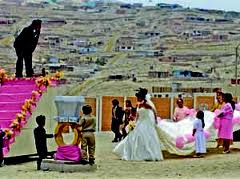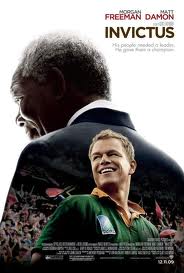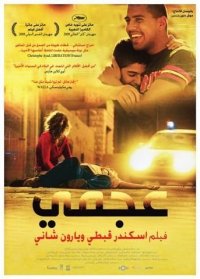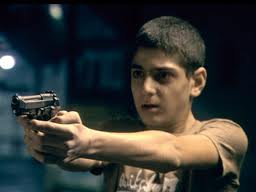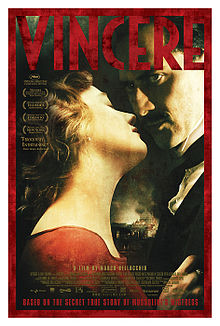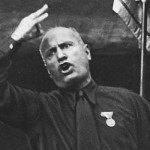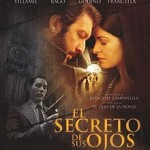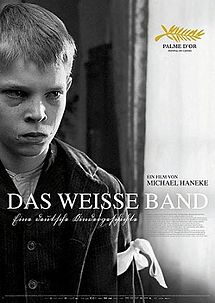 Many of director Michael Haneke’s works—such as Funny Games and The Piano Teacher—have a common pattern where unpleasant characters one after another repeat terrible deeds over and over and it is terrible to keep watching, but the audience expects perhaps there will be some explanation at the end to bring a sense of relief; in the end, though, there is no explanation and the audience is left very emotionally upset. These kinds of movies are “not acceptable” to an audience that prefers American movies, but because all his works win the highest honors at European film festivals such as the Cannes Film Festival, his movies seem to deeply capture the hearts of an audience familiar with European movies.
Many of director Michael Haneke’s works—such as Funny Games and The Piano Teacher—have a common pattern where unpleasant characters one after another repeat terrible deeds over and over and it is terrible to keep watching, but the audience expects perhaps there will be some explanation at the end to bring a sense of relief; in the end, though, there is no explanation and the audience is left very emotionally upset. These kinds of movies are “not acceptable” to an audience that prefers American movies, but because all his works win the highest honors at European film festivals such as the Cannes Film Festival, his movies seem to deeply capture the hearts of an audience familiar with European movies.
Among Michael Haneke’s work, The White Ribbon seems to appeal to a relatively wide range of audiences. The monochrome cinematography is extremely beautiful and faithfully reproduces the essence of the small village in northern Germany in 1913; handsome men and beautiful women aren’t used, but the good performances of the actors—including the children actors—give a feeling of reality, and the fascinating mystery-solving story holds the hearts of the viewers until the end. However, this is not a detective drama and the movie ends without revealing the criminal, in typical “Haneke-esque” fashion.
This movie begins in 1913 with the strange fall from a horse by the doctor of the village, and ends with the suspicious disappearance of the doctor’s family and the midwife and her child living next door that occurs at the outbreak of World War I in 1914. The families that appear are the baron’s family, under which half of the village’s population is employed; the pastor’s family; the doctor’s family; the midwife, who the doctor has sexual relations with, and her young son; the family of the butler serving the baron; the family of the baron’s tenant farmer; a teacher at the village’s school; and the teacher’s lover Eva.
The events that happen to the doctor’s and midwife’s families are: the unexplained falling off the horse; contempt from the doctor towards the midwife and talk about ending their affair; the doctor’s forced sexual relations with his 14-year-old daughter; the assault of the midwife’s mentally retarded child; and the sudden disappearance of the doctor’s and midwife’s families.
To the baron’s family: the accidental death of the wife of the tenant family within their territory; the destruction of their cabbage field by the tenant farmer’s son; the kidnapping and assault and the almost drowning of their young son; and the arson of the barn.
To the tenant farmer’s family: the accidental death of the wife; the destruction of the cabbage fields as revenge taken by the son; and the father’s suicide after being fired.
To the butler’s family: the near death of the newborn baby when the window of his bedroom is left open and butler’s son’s attempt to drown the baron’s young son.
In the pastor’s house, children face severe corporal punishment for any slight mistake made, and the father who is the pastor ties a white ribbon around the eldest daughter and eldest son approaching adolescence in order to preserve their “purity”. The pastor says this is an expression of a parent’s love, but when the eldest daughter is reprimanded very severely in front of a friend, she faints and later kills the bird that her father loves. Also, the eldest son acts strangely, as if trying to commit suicide.
The teacher is from a neighboring town; he gets to know and proposes to marry the young Eva from the same town who commutes to this village to work as a nanny at the baron’s house. Strange events happen one after another and the teacher begins to suspect that the pastor’s eldest son and eldest daughter may be involved behind-the-scenes; but when he goes to talk to the pastor about it, the pastor threatens him for this slander.
At first glance, as the teacher suspects, it seems as though the eldest son and daughter who are oppressed by their hypocritical pastor father have been causing the events that develop one after another in this movie, but I think that interpretation is in the wrong direction. The only events where the culprit is clear are when the tenant farmer’s son devastates the cabbage field to get revenge for his mother, the butler’s son pushes the baron’s son into the river, and the pastor’s eldest daughter kills the pastor’s bird. With the exception of these, everything could have simply been an accident, or the villagers other than the families that appear in the movie may have done things in their hatred of the baron. When thinking about it, it is difficult to believe that children around ten years old committed arson in the night, got into another person’s house, elaborately tied wire around the trees to prevent the way of the horse, and kidnapped and assaulted the baron’s and the midwife’s sons who would recognize their faces, and it is rather unrealistic that children were the masterminds behind all these events. However, it is true that when unresolved incidents occur at the same time, distrust grows worse among villagers and curiosity for crimes grows stronger among children.
This movie depicts the process of the two powers ruling the village gradually losing power. One is the political ruler, represented by the baron. The baron owns the land, but gradually the monetary system penetrates the village and, because of this development of modern society, the baron seems to have difficulty raising money; also, feelings of resistance sprout in the tenant farmers against the ruling nobility. Socialist ideology emphasizing laborer rights steadily reached rural villages. Further, the German Empire that supported aristocracy collapsed in their defeat in World War I.
The other is Protestant asceticism, which has become disfigured; the pastor can’t save the soul of the people and he even ruins the souls of his own children. I don’t think the pastor’s eldest daughter and eldest son assisted in all the crimes, but they begin to question the corporeal punishment and the hypocritical words of “I punish because I love” that their father gives. They can do little as children, but in five years, they would be strong enough to overpower and overthrow their parents. The movie depicts such a fear.
In other words, this movie depicts the antagonism between the ruling class and the opposing social class, the hypocritical pastor’s authority and the children rebelling against it, and the autocratic man and subordinate woman.
Hitler was born in 1889, so he was 25 years old when World War I began, slightly older than the children in this movie. This means that the children in this movie would be the generation that praised Hitler and supported the Nazis during World War II. This movie does not explain the sudden rise to power by the Nazis. However, this movie gives the feeling that, if we were to peek through a telescope, we could see Nazis at the far end of the horizon. Haneke speaks nothing about this, though.
If the audience is left frustrated and irritated after watching The White Ribbon, this means they fell into Haneke’s trap. He said about his own movie, “I make my movies to counteract and criticize American-style movies, which deprive the audience of the ability to question by giving an easy answer. Instead of giving the audience an immediate (and sometimes wrong) answer, my movies stubbornly keep asking the same question. Instead of releasing the audience at the end of the movie, I want to make sure the audience feels there is still distance between them and the truth. I want the audience to keep searching after the movie ends, rather than everyone in the audience agreeing and being satisfied.”
If I paraphrase Haneke’s difficult words, it might be something like, “You search for criminals to solve 15 mysteries in this movie—thank you for your efforts. But unfortunately your answer is wrong. Or perhaps I should say that there is no real criminal that everyone will agree upon. I made this movie because I want you to think with your own head; I didn’t prepare any answer.”


